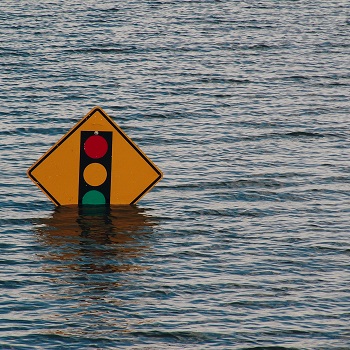Reassuring Words for an Autumn Vote in Ireland?
“The way forward is beginning to emerge”. So said Dick Roche, Ireland’s minister for European affairs, on the eve of the Brussels December summit. It looks like a second Irish referendum for the autumn of 2009.
The Irish Taoiseach Brian Cowen is expected to tell EU colleagues that he will seek a second referendum in the autumn as long as some reassuring protocols can be agreed. These would deal with taxation (where corporate rates have been such a key factor in boosting inward investment), abortion (EU keep out!) and defence (no threat for Irish neutrality).
Putting a fence around Irish taxes may not go down well with those member states which dislike low corporate tax regimes, but reflects the realities of EU policy. On abortion and defence there should be no problem.
The Irish government will also call for the scrapping of Article 17 (5) of the Lisbon EU draft treaty which would reduce the number of commissioners by one third as from 2014, but I see that the Article itself provides that it can be changed by unanimity. My sympathies are with the Irish on Article 17. The Union is distant enough from the citizen as it is. One commissioner per country will certainly be unwieldy in an EU of 30 or more members, but is a price worth paying for smaller states to have someone of their own to engage with in Brussels.
Of course none of this will guarantee an Irish “yes”, but the tide of opinion may well have turned. Ireland has punched well above its economic weight as a financial services centre over the last 30 years, but faced with the credit crunch it is only the country’s eurozone membership and ECB support which have staved off an Icelandic-style financial disaster. The people have taken note.
The credit crisis has transformed the political and economic landscape for everyone. Denmark is now looking increasingly likely to hold its own referendum on adopting the euro to stabilise its economic position. And now we have Iceland desperate to join the EU and the eurozone to rebuild its economy.
So can the UK be far behind? Yes, far behind. Unless, that is, the global economic turbulence gets worse and the Bank of England no longer has adequate resources to bail out the financial services sector. I liked President Barroso’s provocative remarks noting the growing British interest in the euro, especially given his regular meetings with Gordon Brown and the curious spectacle of Sarkozy, Brown and Barroso all getting together in 10 Downing Street to praise each other’s expansionist policies and say, poker-faced, that they had no doubt Germany would join in. Chancellor Merkel is not so convinced.
As well as the Irish question and the financial crisis, EU leaders will be looking at some new dimensions in European defence policy. In one week we have seen the establishment of a naval task force to combat Somali pirates in the Gulf of Aden and the transfer of policing powers in Kosovo from the United Nations to an EU police and justice mission. The European Security and Defence Policy seems to be evolving nicely, with or without Lisbon.
Find Out More
-
Why Europe needs a water resilience strategy
February 8, 2024
-
Why the EU can’t risk failure at COP27
November 4, 2022


